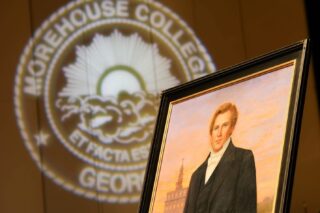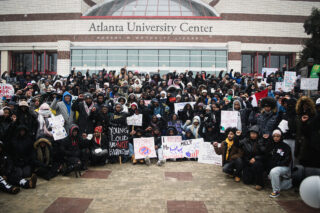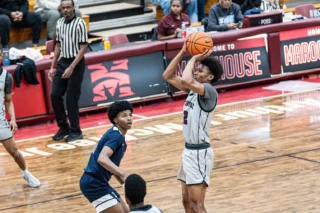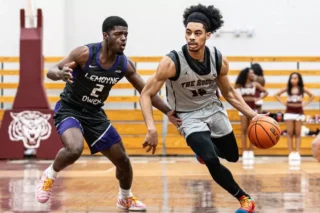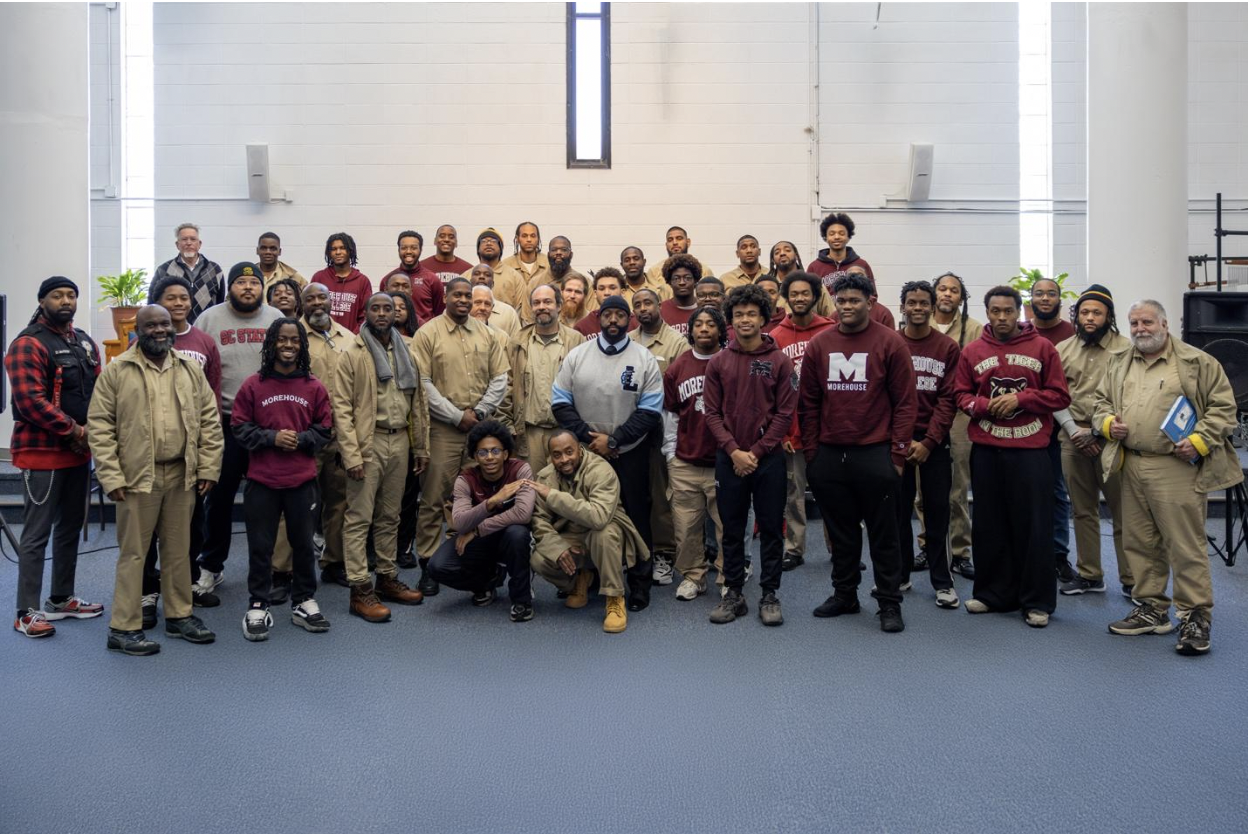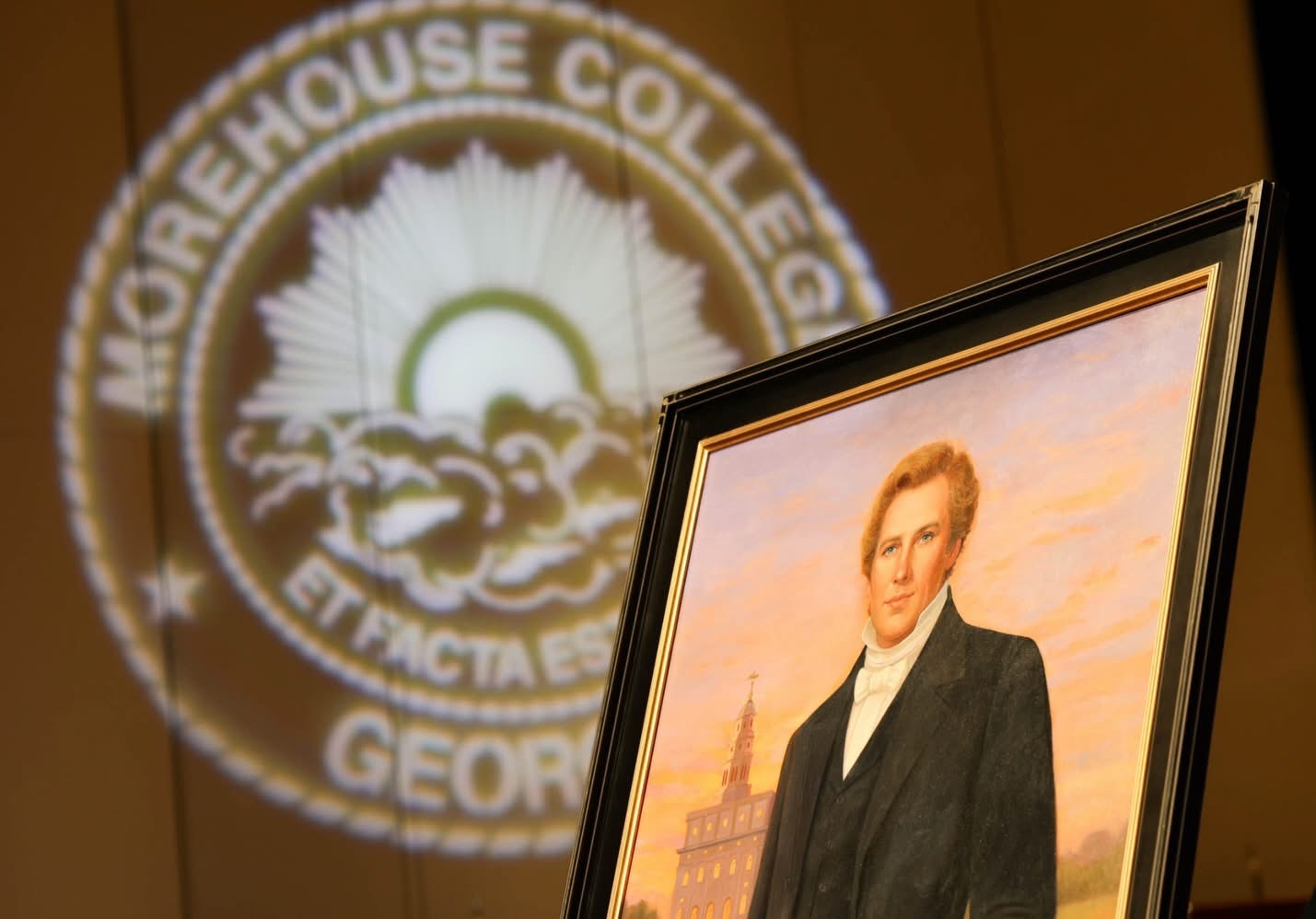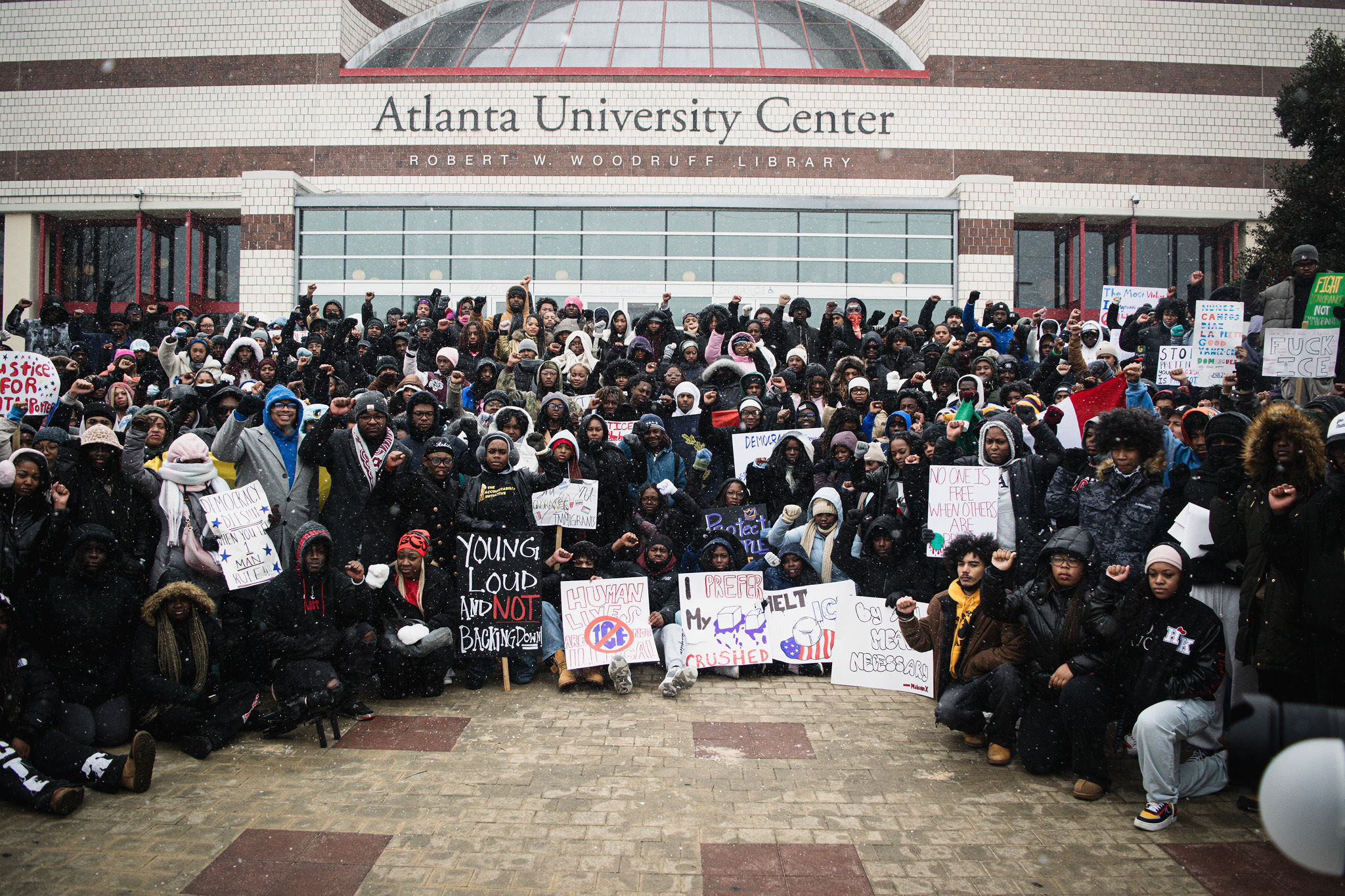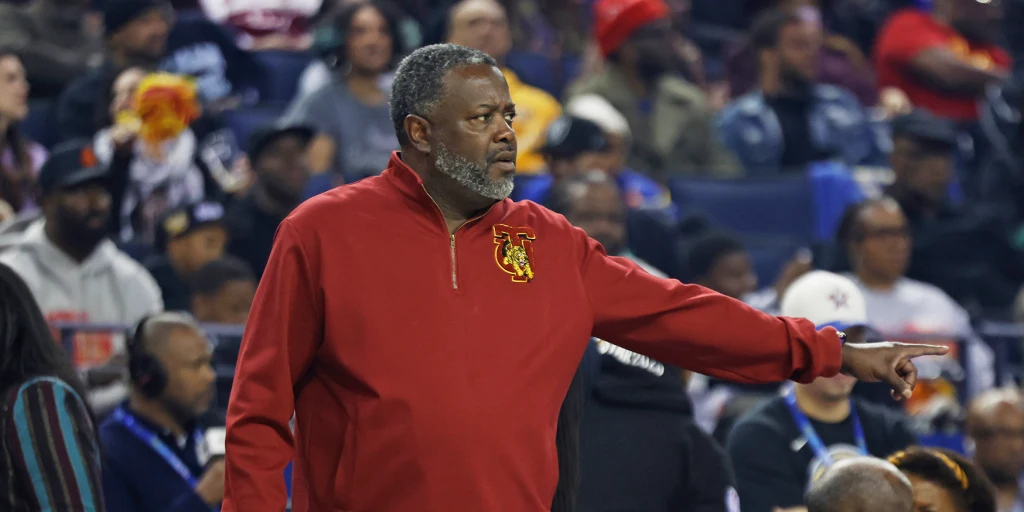Image: Emani Rashad Saucier, AYCGL-HEP
In the early 1900s, the Federal Correctional Institution, Atlanta (FCI Atlanta), housed various individuals from political activists like Marcus Garvey to criminals like Al Capone. Today, with assistance from Morehouse’s Andrew Young Center, FCI Atlanta houses incarcerated individuals seeking higher education.
Rodney Jabar Walker, a Morehouse graduate and visiting assistant professor of Social Justice Leadership, teaches at both Morehouse and FCI Atlanta. His activity within the program has allowed him to take dozens of students to the facility to learn about those inside its walls and fulfill what he believes is the true mission of service leadership.
“The purpose of my courses is to teach students about social and restorative justice from a historical lens, to inform and inspire their trajectory as the next generation of leaders,” Walker said. “I believe that leadership in the form of restorative justice is what I was called to do.”
On Dec. 5, 2024, Walker took a group of his Morehouse students to the correctional institution and engaged in dialogue with many incarcerated men to help bridge the gap. Terrence Duckworth, a sophomore, Biology major from Atlanta, attended the trip and claimed to feel different after his experience.
“I feel wholeheartedly that this is something that everybody needs to do because you come in with a preconceived notion of what these guys are, but really at the end of the day they’re just human the same way we are,” Duckworth said.
One of the biggest lessons learned was the importance of change, and Walker is one of Morehouse’s community professors actively seeking it.
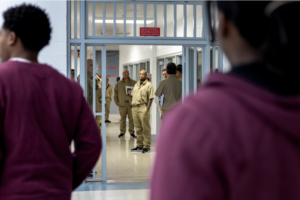
Students walking past incarcerated individuals. Photo Credit: Emani Rashad Saucier, AYCGL-HEP
“What I can say about Professor Walker is he will put you in an uncomfortable situation to make you comfortable,” Duckworth said. “You never want to be in a space where you could always remain comfortable because then you would never be able to grow.”
For Walker, the importance of being uncomfortable leads to leaders who will create a better society, especially in the justice system.
The significance of the Higher Education in Prisons Program allows students to develop a deeper understanding of what service leadership is and how it impacts not just the students, but globally as well.
“My hope is that students developed an experienced empathy and compassion for the men that Morehouse is teaching inside prisons,” Walker said. “With that empathy, I hope it inspires the college students to work harder to become the leaders it will take to create a more comprehensive restorative justice program for men that look just like them.”
For students like Duckworth, this is one step in the right direction and it all begins with change.
“Change is one of those things that people are uncomfortable with, but now we’re trying to make people comfortable with it,” Duckworth said.
To learn more about the Higher Education in Prisons program, click the link here.
Copy Edited by Niles Garrison, Features Editor; Updated by Craig Brown, MT Advisor




